Elevated Blood Pressure Symptoms – The Wake Up Call
I’m here to help you understand what elevated blood pressure symptoms are. Do you know why it’s more than just a number your doctor tells you? Blood pressure is the force of your blood pushing against the walls of your arteries. 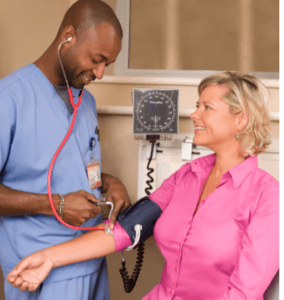
Elevated Blood Pressure Symptoms
Each time your heart beats, it pumps blood into these vessels. Elevated high blood pressure symptoms are when that force is higher than normal over time. It is also known as hypertension symptoms.
Now, What Happens When Blood Pressure Goes Up?
Think of it like the stress on a garden hose. If the pressure is too much, the hose may wear out or even burst. Your arteries face a similar risk when blood pressure isn’t in the safe zone. That’s why distinguishing between normal and elevated levels is a must-know for everyone.
Regular Monitoring is Quintessential
But don’t worry too much about needing to be a medical expert. Regular monitoring of your blood pressure gives you clues about your health before serious problems show up. This is why blood pressure readings are a standard part of most medical appointments. 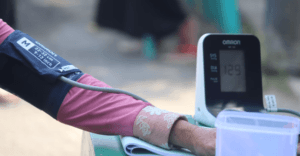
Simple Changes Make a Difference
However, taking care of your health is way more than just monitoring, per se. It’s more about managing. What you eat, how much you move, and other lifestyle choices play a big role. Simple changes make a sizeable impact on keeping your blood pressure within a healthy range.
Recognizing the Symptoms of Elevated Blood Pressure
The Silent Killer
Let’s hone in on the sneaky nature of high blood pressure. First, it often strikes without obvious symptoms. This is why it’s dubbed the ‘silent killer.’ Nonetheless, you might notice signs suggesting your blood pressure could be in the danger zone.
Recognize the Physical Symptoms
While you won’t always feel unwell when your pressure spikes, certain physical symptoms shouldn’t be ignored.
These are the signs and symptoms to look out for:
- Persistent headaches
- Episodes of dizziness
- Unusual sense of pounding in your chest, neck, or ears.
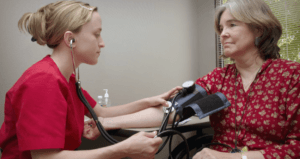
This isn’t just about overt symptoms, either. There are silent signs, too. High blood pressure might be working against your body without clear warning signals. Therefore, routine checks will definitely bring these stealthy readings to light.
Early Detection is Highly Important
Early detection is key. So, let’s catch them before they culminate in severe health issues. Pay close attention to what your body is telling you. Don’t blow it off.
Don’t Ignore the Warning Signs of High Blood Pressure
I’m here to highlight that ignoring these subtle cues carries risks. Left unchecked, elevated blood pressure can stealthily damage your heart, kidneys, and other organs, leading to debilitating conditions that could have been prevented with early management. Get yourself a blood pressure monitor where you can check it daily or weekly. They are a must, and you’ll be able to check your numbers between doctor appointments for peace of mind.
Trust Me, I’ve Been There, Done That
If something feels off, most likely it is. Back in the day, during some of my highly productive days, I ignored a lot of cues that my body gave me. Whether it was a nagging headache, a tightness on the left side of my neck, a weird uneasiness in my chest, or just a feeling that something was not right, have these symptoms assessed?
Pay Attention to Your Sodium and Caffeine Intake
I was a master at ignoring these symptoms. So, don’t ever ignore these signs. See your doctor immediately. In my case, I was taking in enough sodium and caffeine to kill a horse, literally. After ending up in the ER a few times, I finally started to turn things around. 
High blood pressure is extremely damaging to your heart. It can mess up other organs, such as your kidney and liver. I advise you to get a handle on your health and learn the art of living a healthier, happier lifestyle. If not for yourself, do it for your family and friends.
I lost My Father as a Teenager
Living a healthy lifestyle is crucial and very, very quintessential. Especially if you are in a parental or leadership role. My dad was a hard worker and was an excellent provider. He worked 2 and sometimes 3 jobs to make sure we always had a roof over our heads and food on the table.
There were a lot of mouths to feed. That’s a lot of bread and butter with seven boys and four girls. However, he did it. On the other hand, he was a hard-core chain smoker, and our house was full of smoke when he was not out in the field.
Smoking Raises Blood Pressure
As you can imagine, smoking a pack or two of Marlboro’s or Winston’s is no small task. My dad’s poor lungs. Long story short, I was barely 15 when I lost my father.
His blood pressure must have been super high from the smoking, the stress of raising 12 kids, and all of life’s ups and downs along the way. However, my dad was a great guy and a great family man. In 1967, he bought my mom her first brand-new home. 
Everything in Moderation
He also loved high-calorie desserts, ice creams, pizzas, and lots of fried foods. About a few months before his death, his doctor put him on a strict Mediterranean-like diet and advised him to give up the cigarettes. Unfortunately, he passed away from a massive heart. He was only 49.
Take Your Health and Lifestyle Seriously
So, the moral of the story is to take your health seriously, watch what foods you put in your mouth, and avoid smoking at all costs. Remember, everything in moderation. 
Avoid Stressful Environments
Don’t forget the influence of mental well-being on our body’s operations. Stress and anxiety will temporarily raise your blood pressure. Although it is not a chronic elevation, stress acts as a reminder of the mind-body connection’s power over our health.
When to Seek Medical Attention
There are some critical times when reaching out to a healthcare provider about high blood pressure; it’s not just a good idea; it’s essential. Now, I’m here to help you identify these crucial moments so you will take action promptly.
Don’t Wait for a Crisis
Don’t wait for a crisis. If you notice consistent readings of 140/90 mm Hg or higher, booking an appointment is time. Your first step is setting up a visit to discuss your blood pressure concerns. Your healthcare provider will give you a comprehensive evaluation.
Occasionally, blood pressure spikes will signal a hypertensive crisis, a potential emergency situation. If you’re experiencing symptoms of high blood pressure, seek immediate medical attention.
Look for symptoms such as :
- Severe headaches
- Shortness of breath
- Nosebleeds along with high readings
Get Routine Check-Ups
I can’t stress enough the importance of routine check-ups. They’re your safety net for catching elevated blood pressure early. It’s not just about one elevated reading; the pattern over time counts.
Approach the conversation with your healthcare provider openly. Share your lifestyle, any symptoms, family history, and even the smallest changes you’ve noticed. You’ll find out how valuable this comprehensive picture is for your health strategy.
Lifestyle Adjustments to Manage Elevated Blood Pressure
If you want to keep your blood pressure in check, it’s as simple as making lifestyle adjustments. It is not just about tweaking your diet. It involves a holistic approach that encompasses everything from what you eat to how often you move. 
Lower Your Sodium Intake
There are many types of dietary changes that will have a positive effect on your blood pressure. Cutting down on salt is a well-known recommendation, but there’s more to it.
Incorporate a Healthier Lifestyle
Incorporating more fruits, vegetables, and whole grains and reducing saturated fat and cholesterol makes a significant difference.
Get Regular Exercise
Regular physical activity is another pillar of managing blood pressure. Even moderate exercise, like brisk walking, helps lower your blood pressure and keep it at a healthy level. The goal is to aim for at least 150 minutes of moderate-intensity exercise per week. 
Avoid Stress at All Costs
Stress is a silent contributor to elevated blood pressure. Implementing stress reduction techniques helps you manage stress effectively.
Here are ways to reduce stress:
- Yoga
- Walking
- Meditation
- Journaling
- Deep breathing exercises
These practices lower blood pressure and improve your overall mental well-being.
Quick Smoking and Drink in Moderation
Don’t forget about smoking and alcohol consumption. Both will elevate blood pressure. If you’re a smoker, quitting is one of the best things you can do for your blood pressure.
When it comes to alcohol, moderation is the word. Limiting yourself to no more than one or two drinks a day has a beneficial effect on your blood pressure as well as your heart health.
Create a Well-Balanced Overall Lifestyle
Remember that these lifestyle changes aren’t one-size-fits-all. Choose something that resonates with you that is sustainable long-term. The primary objective is to create a balanced routine that supports a healthy blood pressure level and overall well-being. 
Now, while lifestyle adjustments will significantly influence blood pressure, there are cases where medication might be necessary. This transitions us into the next vital piece of the puzzle: navigating the waters of treatment options.
Navigating Treatment Options
Medications and Interventions
That’s the rundown on lifestyle modifications. But what happens when those aren’t enough to manage elevated blood pressure? Sometimes, medications become necessary to keep things in check.
A variety of drugs work in different ways—some relax your blood vessels, while others slow down your heartbeat.
Keep Your Doctor in the Loop
Medications are often the first step, but they come with the need for regular follow-ups. It’s so important to have open communication with your doctor. You can always adjust your approach down the road. However, that’s much easier to do when keeping your doctor in the loop.
Biofeedback and Meditation
Non-pharmacological interventions like biofeedback or meditation are surprisingly effective, especially when combined with lifestyle changes. Such strategies complement your medication regime or, in some cases, might even provide an alternative.

Renal Denervation
Recent advances in hypertension treatment show a lot of promise. Procedures like renal denervation are gaining attention. However, they’re typically reserved for more severe cases. I think it’s fantastic that research is ongoing because it means future treatments will be even better.
The Final Wrap
To wrap things up, dealing with elevated blood pressure is a journey requiring cooperation with healthcare professionals. Whether you’re on medications, making lifestyle changes, or exploring other interventions, always remember that your efforts are a crucial investment in your long-term health.
Founder, Rachele
(web) mybluegenes.com
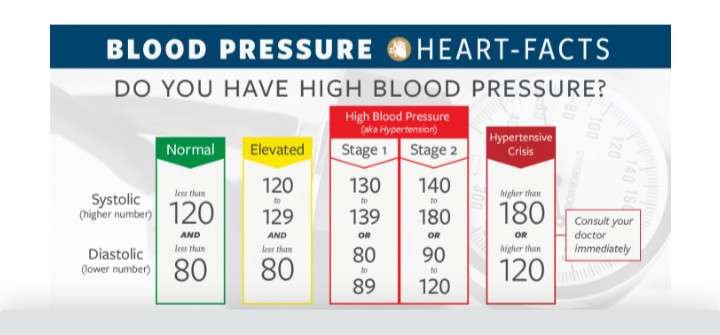

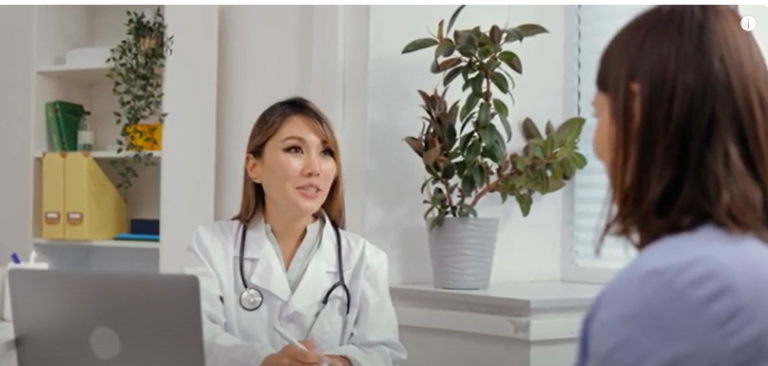

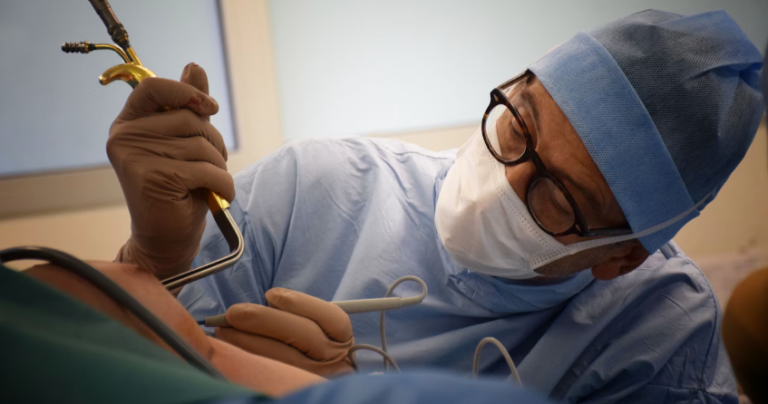
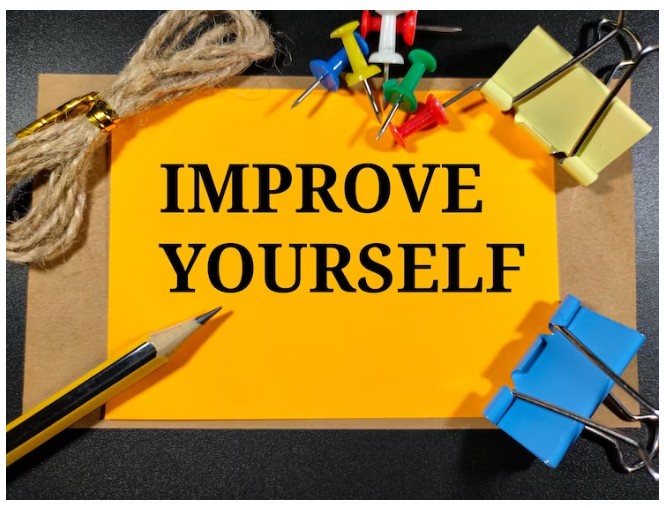

That’s a lot of people, my friend. Also, it is a serious diagnosos and a silent killer.
Take care,
Rachele
Only wanna comment that you have a very nice web site, I enjoy the design it actually stands out.
Hi Janene,
Nice hearing from you. Kindness and encouragement goes a long way.
Enjoy your weekend.
Rachele